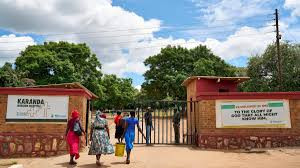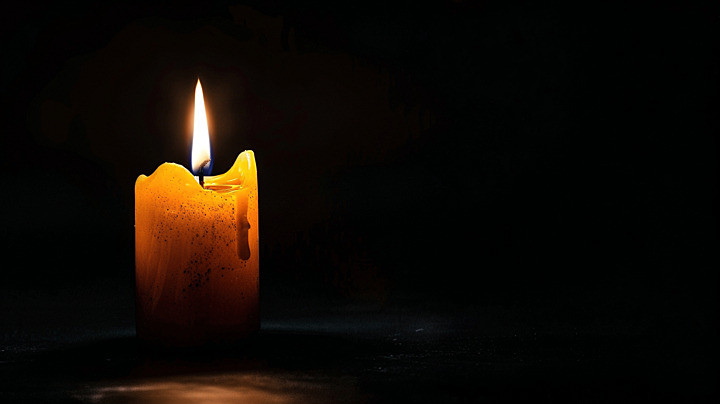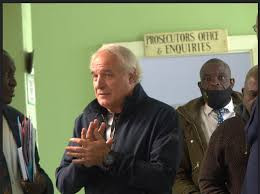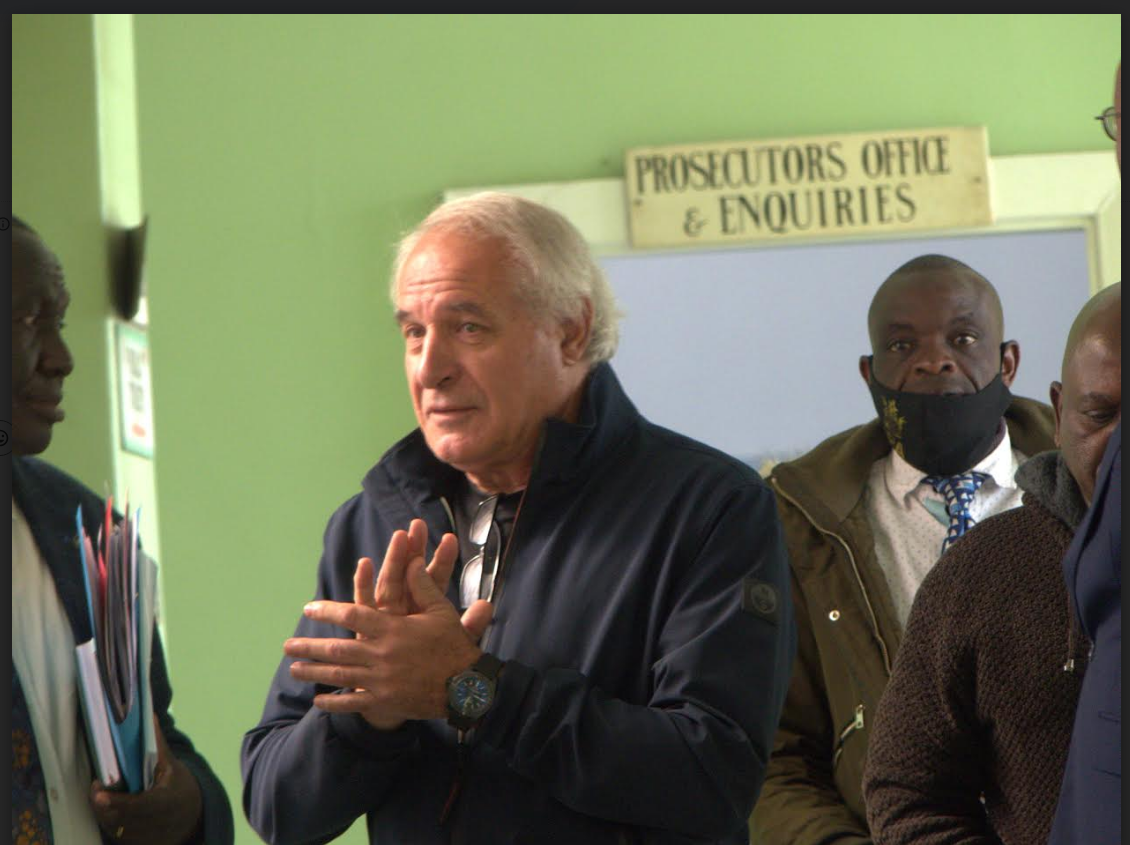
*Innocent and *Temba are two black middle aged Zimbabwean men.
BY CHIPO MASARA
Both live in Zimbabwe’s capital city, Harare, and both are married and have children. But that is as far as the similarities between the two men go. What is startling is the stark contrast between the lifestyles the two lead.
Innocent is a father of four children and makes very low-budget mattresses that he sells in Glen View 7, the high-density suburb he has been living in for more than a decade.
While his business has seen some somewhat good days, it is presently depressed and the money he is making is hardly enough to cater for his growing family’s needs. To help, his wife sells vegetables on their street.
But even after they combine their earnings, Innocent says the money is still too little to afford them a decent livelihood. He says his family has since learnt to make do with the little that is available.
“What matters is that my family has a roof over their head, something to put in the stomach and that the children are attending school,” said Innocent.
The accommodation that Innocent and his family share with three other families is far from decent. All four families are tenants paying monthly rentals to the landlord — a single young man who occupies a room there, whose parents that own the house have since migrated to their rural area.
The classroom block styled house, does not look like it has had any maintenance work done on it for a long time, evidenced by the state of deterioration it has fallen into. Most of its windows are broken while the doors hang precariously on falling hinges.
Innocent and his family occupy two of the seven rooms that make up the house: one room serving as the bedroom for him, his wife and their two-year-old child, while the second room serves as the kitchen, sitting room and bedroom for their older children.
According to studies, poor housing conditions increase the risk of severe ill-health during childhood and early adulthood.
Children living in poor overcrowded conditions are more likely to have respiratory problems while the conditions are believed to also have an impact on their wellbeing throughout their lives. In overcrowded environments, child safety is also believed to be at great risk.
But Innocent’s situation is not exactly peculiar. Millions of other Zimbabweans, the majority of whom are out of employment owing to the continued closure of companies, are living similar lives, or are worse off.
The Zimstat Poverty, Income, Consumption and Expenditure Survey of 2011-2012 released last year, showed that over 60% of Zimbabweans are living in abject poverty while the few that are employed earn below the poverty datum line, currently pegged at US$560. Most ordinary Zimbabweans in urban areas are failing to make ends meet and are reportedly surviving on average on US$1 per day.
Meanwhile, on the other side of town, Themba might have problems, but it does not look like money is one of them. He is employed as general manager of a local mining company that is doing well, judging from how well he is doing financially.
Although Themba’s main house accommodates only him, his wife and their two children, it is big enough to host a conference. The staff quarters look better than most houses in Harare’s high-density suburbs. The couple’s first born; a boy aged 19, is studying for a degree in Australia and comes home at the end of each semester, while the younger boy is a boarder at one of the private schools that only rich people can afford.
Themba drives a 2007 Chevrolet Trailblazer while his wife owns a slick and executive Mercedes Benz C-Class. The Toyota Yaris that they bought for their older son stays secured, waiting for his return. Sleeping next to the carport, and watching me as I admired the top-of-the-range cars, were two dogs that — owing to apparent over-feeding — did not look like they could run.
Themba is one of the few Zimbabweans that have managed to accumulate massive wealth even though the majority are in dire straits and are struggling to survive.
Nothing succinctly illustrates the widening gap between the haves and the have-nots more than does the difference between salaries of chief executives of State bodies and those of the few people in the country that are “lucky” enough to be formally employed. Cuthbert Dube, as chief executive officer for PSMAS, earned US$500 000, which translated to US$10 000 a day, while the lowest paid employee at the medical aid services provider took home barely US$300.
ZBC chief executive officer Happison Muchechetere reportedly received US$27 000 per month while workers at the distressed State broadcaster went for months without pay. Other companies whose top executives earned high salaries and allowances during a time the economy struggled included those from NetOne (US$37 050), DPC (US$36 359), IDBZ (US$35 446), RBZ (US$32 943), NSSA (US$29 062) and Zera (US$28 403), among many others.
In a Pastoral Letter to the Nation, themed “Let justice roll down like water and righteousness like an ever flowing stream” (Amos 5:24), the Zimbabwe Council of Churches (ZCC) bemoaned the widening gap between the rich and the poor in Zimbabwe.
“While we acknowledge the role of the State and civil society in promoting justice and peace in the land, as well as in providing for the needs of the citizens, we are extremely concerned with the glaring crisis of accountability and poor corporate governance which is manifest through: poor service delivery in both public and private sectors, corruption across all sectors of our society, obscene salaries earned by a few individuals in churches, private and State institutions,” said ZCC.
“We are disturbed by the growing levels of poverty amidst the growing rate of loss of employment, the failure by the government to drive the economy toward the publicly declared Millenium Development Goals, the deflation crisis which has the capacity to lead to massive social suffering, the exploitation of natural resources which seems to be shrouded in secrecy and mystery, the lack of preparedness of the Civil and State organs in dealing with natural disasters as has been the case at Tokwe-Mukosi, Tsholotsho and other affected areas where human life is under immense suffering because of floods.”
John Robertson, an economist, blamed the government for the present state of affairs, citing greed and dishonesty by a few individuals for the suffering of millions.
“This is a level of greed that is almost beyond belief. In the end, the poor are going to get increasingly angry at the few individuals that are making fortunes. Those few hundreds will feel the anger of millions of people and soon, they might need to find somewhere to hide,” said Robertson.
Japhet Moyo, secretary general of ZCTU concurred, saying the country consisted of two groups: those that are very rich, and those that are very poor, a situation he said explained why those living in the leafy suburbs live comfortably and continue to acquire properties, while the majority of those in high-density suburbs struggle to feed their families.
“If you visit those that live in the leafy northern suburbs, they will not believe that there are poor people in Zimbabwe.
“As Labour, when we embarked on a study two years ago, it revealed that the people that are earning obscene salaries comprise a very small number and those are the people that continue to accumulate more properties that people at the bottom cannot,” said Moyo.
*Not real names











